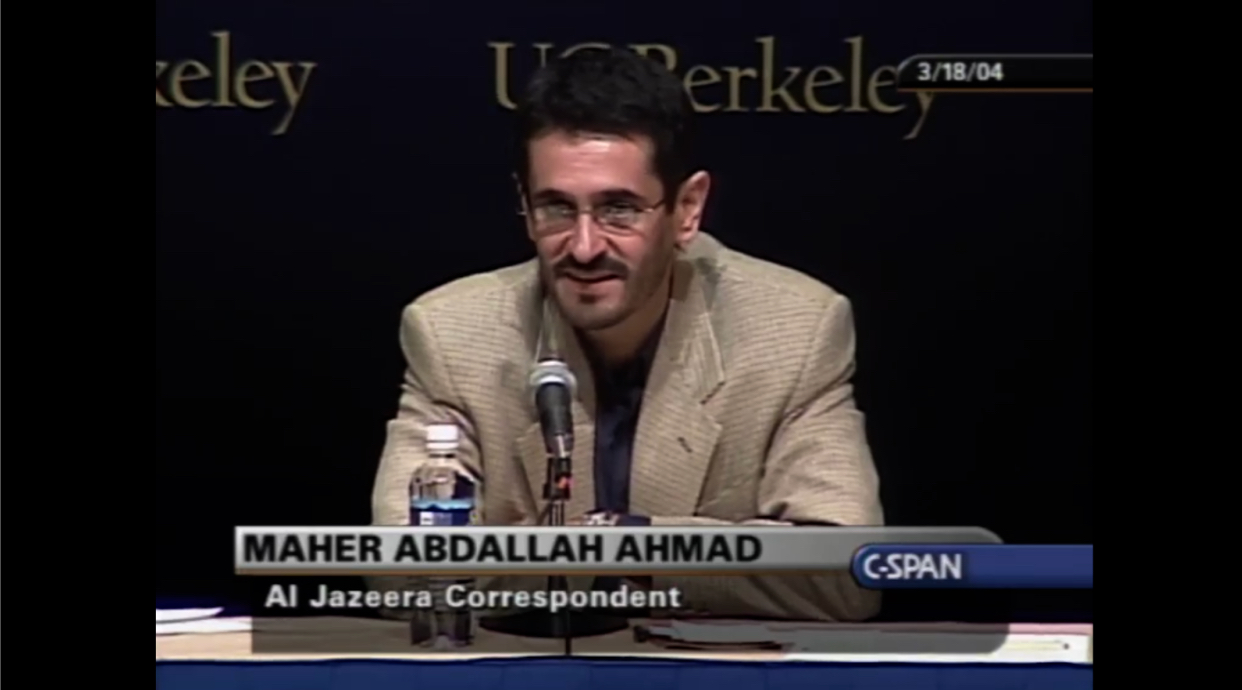Remembering Maher Abdullah Ahmad
Gallery

Maher Abdullah Ahmad was the acting head of International and Media Relations for Al Jazeera, an international news network based in Qatar, as well as the host of the weekly program titled, “Al Sharia Wa Al Hayat,” which translates to Sharia, being the body of religious law in Islam and “Al Hayat,” which is life.
Abdullah was a respected and rising journalist and writer. One of his siblings who currently lives in Dearborn, who requested to remain anonymous for security reasons, said, “We used to worry for him sometimes, he used to drive with one hand on the wheel and the other clutching an open book!”
Abdullah joined Al Jazeera in 1998 starting out as the head of the assignment desk. According to the Institute for Professional Journalists (IPJ), Abdullah wrote for the pan-Arab daily Al-Hayat as well as Al Wasat daily and covered the American-led Iraqi war of 1990. During his time with Al-Hayat, he also covered the Bosnian-war. Al Jazeera mentioned that he also worked for the Middle East Broadcasting Corporation (MBC) in the British Capital.
Abdullah was of Palestinian origin and was born in the West-bank city of Jenin. Abdullah had a degree in mechanical engineering from a British university before pursuing journalism.
According to Arab News, Abdullah was among a very small number of journalists who covered the Iraq war in Baghdad in the “red-zone.” Abdullah’s dedication to reporting the truth was evident in his participation on a C-SPAN panel on March 18, 2004, where journalists discussed the challenges of covering the Iraq war.
Abdullah had been one of two Arab correspondents on the panel. On the topic of the truth that the media preaches to the public, he said, “It is very significant to get it right- what does right mean? Of course we are not one entity as the media- but what does right mean? Changing Saddam Hussein? Accurate in the number of deaths? What is collateral damage? When the media starts using the term ‘collateral damage,’ they are definitely not talking about journalism as taught in school, they are talking about a kind of media that is manipulated by politicians!”
In 2003, Abdullah had witnessed the airstrike that had killed Al Jazeera reporter, Tariq Ayoub. Al Jazeera reported that Abdullah had documented the events of the attack on the Al Jazeera Baghdad bureau which resulted in the death of Ayoub. Al Jazeera reported, “His unpublished notes were provided to Al Jazeera by his brother Abraham Abdullah.” Of the notes his brother provided to Al Jazeera, it was made clear that Abdullah had written that Al Jazeera’s general manager had “reiterated American assurances about the bureau being known to them and that it would not be targeted.”
It was stated in an article by Refworld explaining what happened the day Ayoub was killed and what Abdullah had witnessed, “According to Abdullah, the crew realized moments later that their still camera had been knocked out of position and now faced the Ministry of Information building, which Iraqi authorities had explicitly warned the crew not to film.”
According to the findings in Abdullah’s notes, Refworld further stated that Abdullah heard the US aircraft fly so low and close to the building that they all felt as if it was going to crash into them. It was at this point that the missile struck the generator which was eerily close to Ayoub’s position.
Ayoub and his assistant camera man later went on the roof and were live with the footage of the U.S. aircraft before a missile struck Al Jazeera’s power generator, killing Ayoub and leaving Abdullah as a witness.
Shortly after the missile killed Ayoub, a plane passed and fired another missile which, according to Abdullah’s writings, struck across the road about 50 feet from the front door and blew it off its hinges.
Maher Abdullah Ahmad died seven months later when his car crashed into a tree in Doha, Qatar, on the morning of September 11, 2004.
Abdullah’s wife has possession of all of his remaining research and various other sources of evidence that he had collected as a war correspondent.
Abdullah’s sibling said, “His death broke our family. When he died, no one could even say anything. He was more than a brother to me, he was my best friend, he raised me and cared for me. We were the closest of our siblings- and I only got to see him once before he died. His daughter took it the hardest after his death and lost hope and faith in Allah. But it was faith and belief that kept me at peace. That is what keeps us all Palestinians at peace during these times. This is not our only life, we have a life after this and that is when justice will be true. Until then we wait and we wait in peace.”
